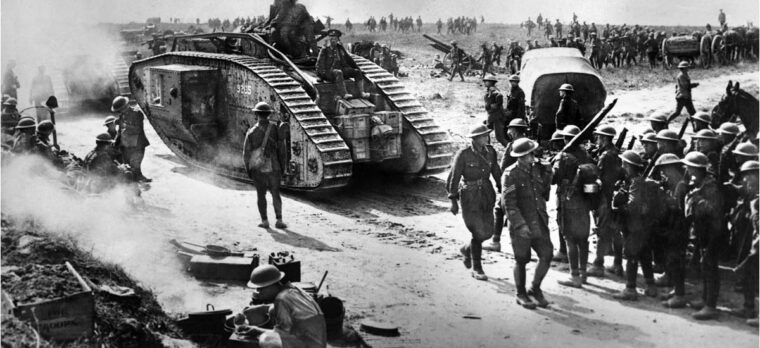
World War I
Canadian Valor at the Battle of Amiens
By Mike PhiferThe drone of a Royal Air Force bomber could be heard overhead in the early morning of August 8, 1918, as it flew up and down the Allied line near Amiens, France. Read more
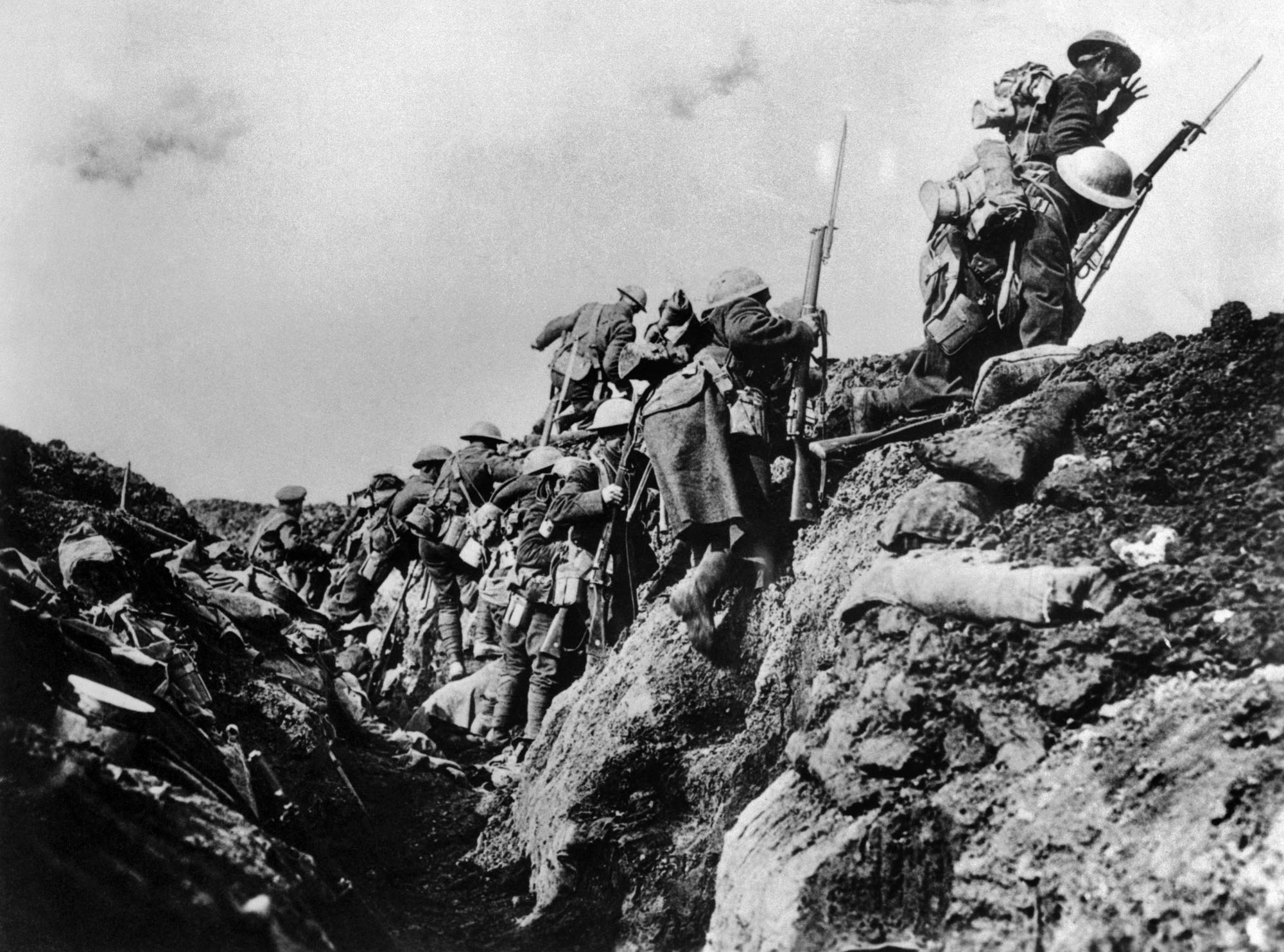
World War I was a global conflict of the early 20th century from 1914-1918, between the Central Powers, Germany, Austria-Hungary, the Ottoman Empire and Bulgaria, and the Allied powers, primarily Great Britain, France, Russia, and later the United States. World War I was ignited in the Balkan city of Sarajevo in June 1914 with the assassination of Archduke Franz Ferdinand, heir to the Austro-Hungarian throne, and war was declared in August. World War I was characterized by the horror of trench warfare on the Western Front and the rise of Bolshevism in the East, and millions died in the catastrophic conflict. The causes of World War I were many, including various territorial disputes, a major arms race, conflicting political ideologies, and more. World War I ended with the Treaty of Versailles; however, the agreement left many issues unresolved and heaped blame and the requirement for reparations on Germany, sowing the seeds of World War II.

World War I
The drone of a Royal Air Force bomber could be heard overhead in the early morning of August 8, 1918, as it flew up and down the Allied line near Amiens, France. Read more
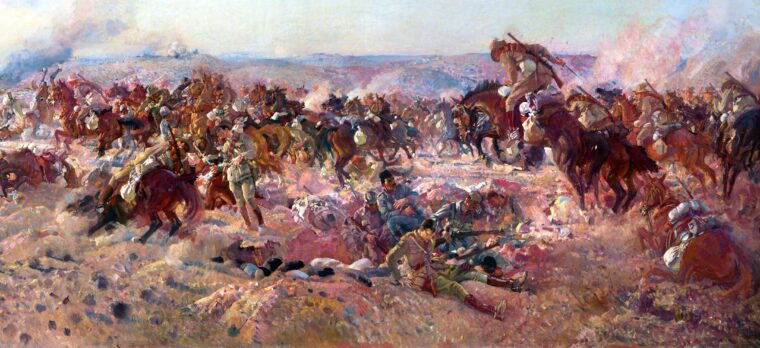
World War I
In late 1917, the most successful cavalry charge of World War I took place not on the muddy killing fields of the Western Front, but at the foot of the Judean Hills in southern Palestine. Read more
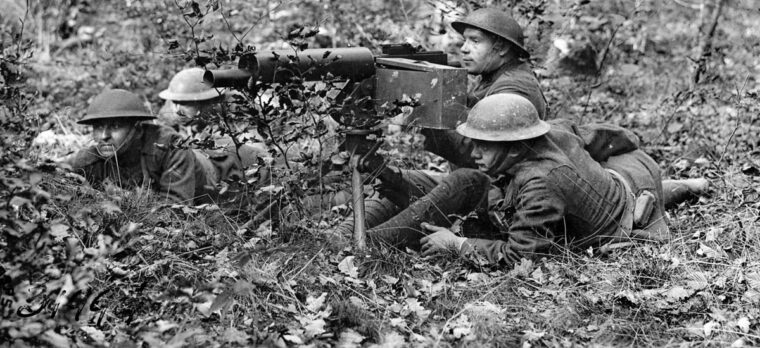
World War I
As the fateful day drew to a close, the exhausted soldiers of the German 25th and 82nd Reserve Divisions huddled in their trenches. Read more
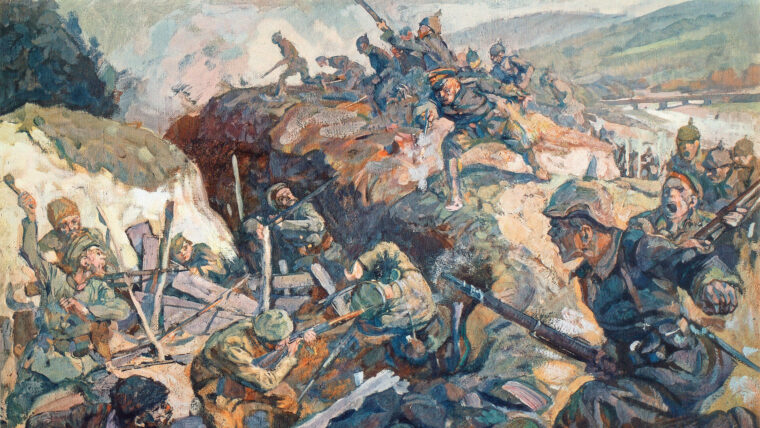
World War I
The high command of the Imperial Russian Army, known as Stavka, met on April 14, 1916, at Mogilev in Belarus to discuss possible offensive action against the Germans and their Austro-Hungarian allies on the Eastern Front. Read more
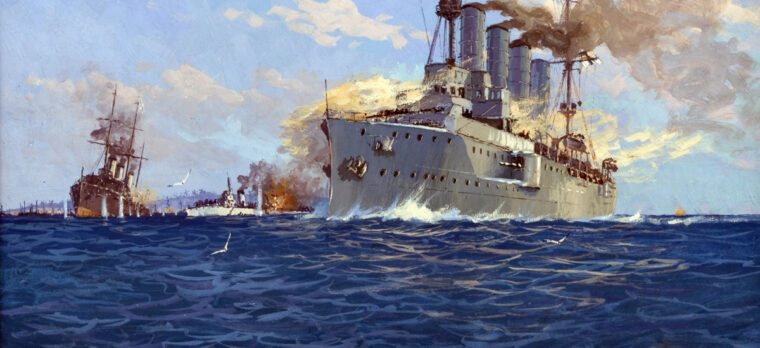
World War I
World War I was only a few days old when the German light cruiser SMS Emden, patrolling off the Korean Peninsula, spotted its first target. Read more
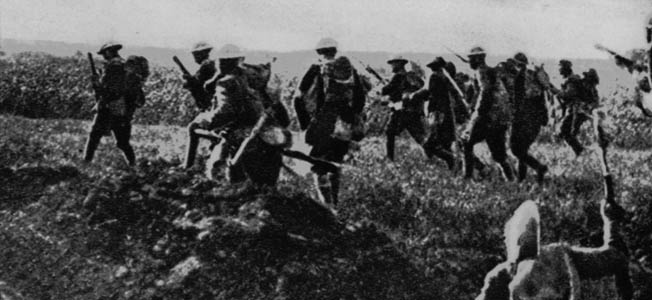
World War I
This WWI Timeline covers the first decade of the 20th century, in which the so-called “Great Powers” of Europe attempted to advance their economic and technological prowess to out-do—or at worst, at least keep pace—with their neighbors and rivals. Read more
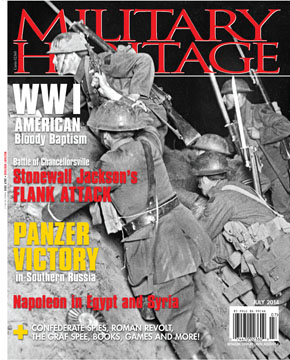
World War I
As the fateful day drew to a close, the exhausted World War I soldiers of the German 25th and 82nd Reserve Divisions huddled in their trenches. Read more
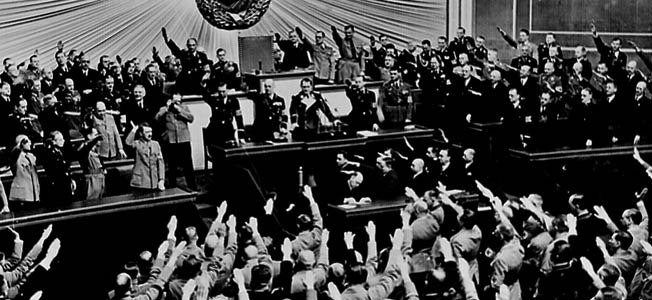
World War I
Born in Branau, Austria, on April 20, 1889, Adolf Hitler rose to lead the Nazi Party in Germany during the 1920s and was appointed the nation’s chancellor in 1933. Read more
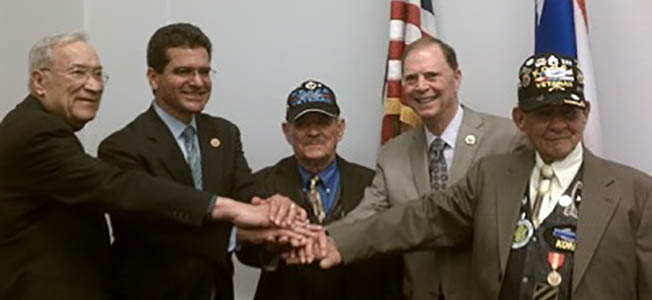
World War I
The 65th Infantry is a U.S. Army unit that played a major role in World War I, World War II and the Korean War. Read more
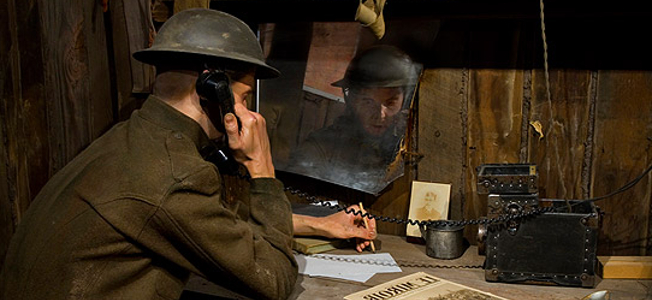
World War I
Often called the “first modern war,” World War I introduced a great many technological developments as the world carried itself further into the industrial age. Read more
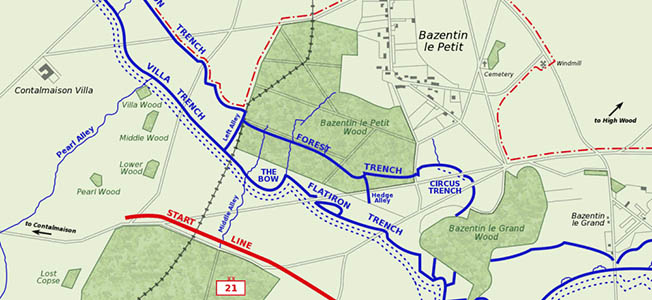
World War I
World War I’s Battle of the Somme was a grueling four-month battle involving French, British and German forces. It was one of the larger and more memorable conflicts in the war, with an estimated one million soldiers killed or wounded. Read more
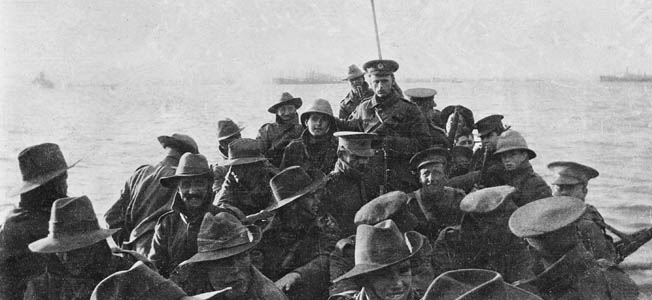
World War I
On this day in 1915, 42,000 Ottoman soldiers against 17,000 World War I ANZAC soldiers in the now famous Battle of Gallipoli. Read more
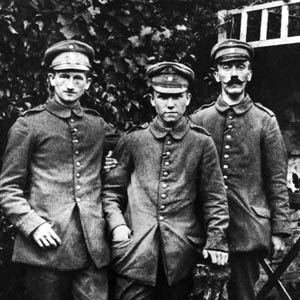
World War I
Private Henry Tandey had a clear shot at the German soldier. He was so close that he could look his enemy in the eyes. Read more
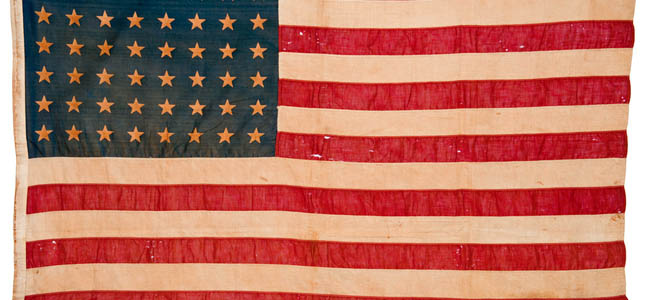
World War I
Founded in 1773, the Charleston Museum in South Carolina dubs itself “America’s First Museum.” Its new collection, “Unfurled,” is a stunning collection of historical flags from American history. Read more
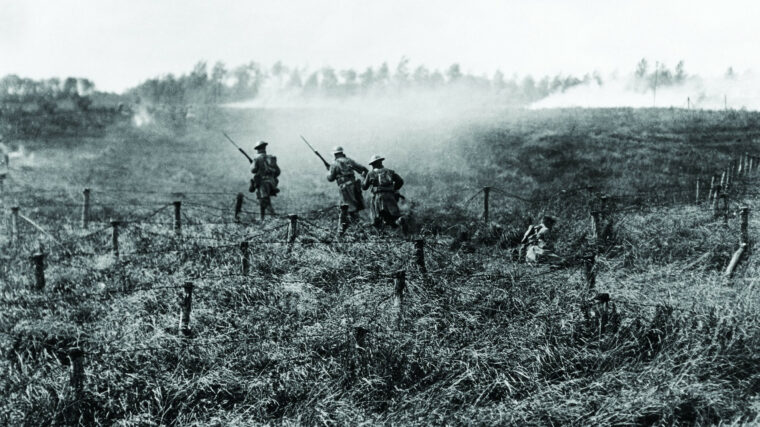
World War I
At 0100 hours on September 12, 1918, German positions in the St. Mihiel salient on the Western Front were lit up by a massive artillery barrage. Read more
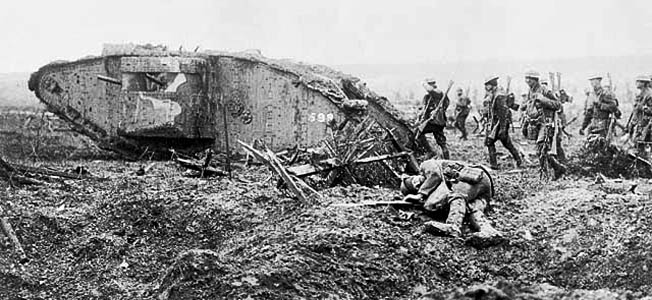
World War I
June 28, 2014 will mark a key milestone in military history: it will be the centennial anniversary of the start of World War I. Read more
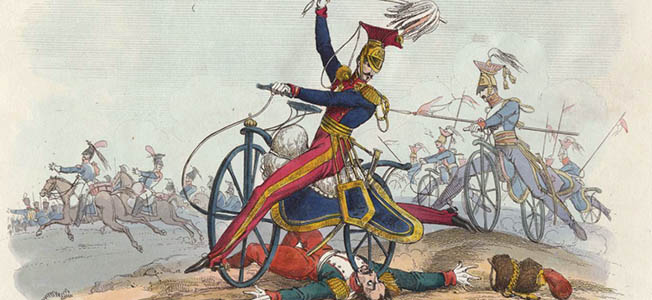
World War I
by Peter Suicu
Ironically, two nations that used bikes in the greatest numbers have never actually used them in anger. Read more
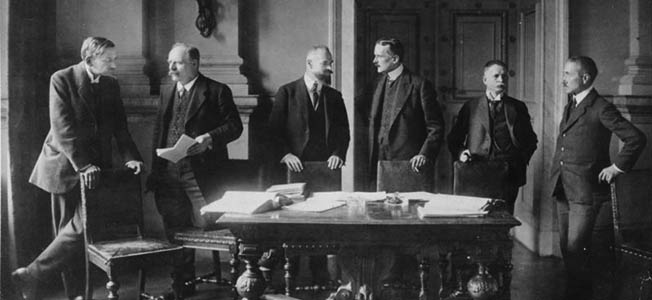
World War I
At least ostensibly, World War I ended first with the cessation of armed hostilities between the warring powers at the famed “11th hour of the 11th day of the 11th month,” that is November 11, 1918. Read more

World War I
In recent years, the U.S. military has made significant announcements on the replacement of its old equipment, much of it dating back to the Cold War. Read more
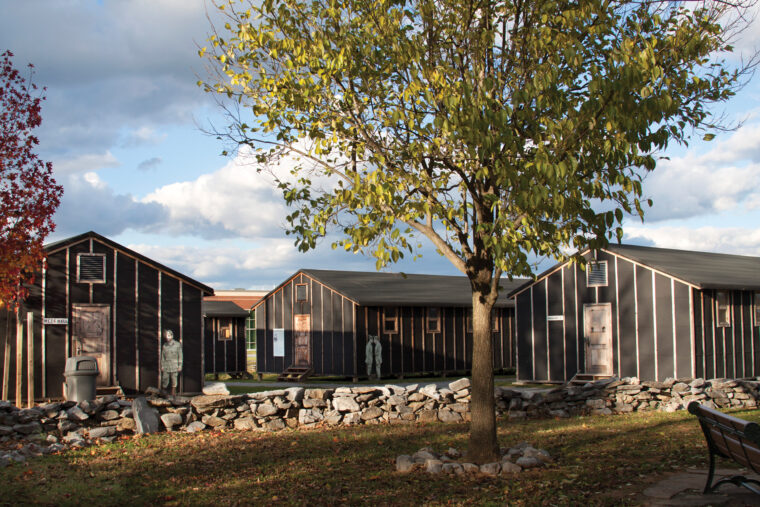
World War I
In the heart of Pennsylvania, not far from the Civil War battlefields of Gettysburg, stands the U.S. Read more